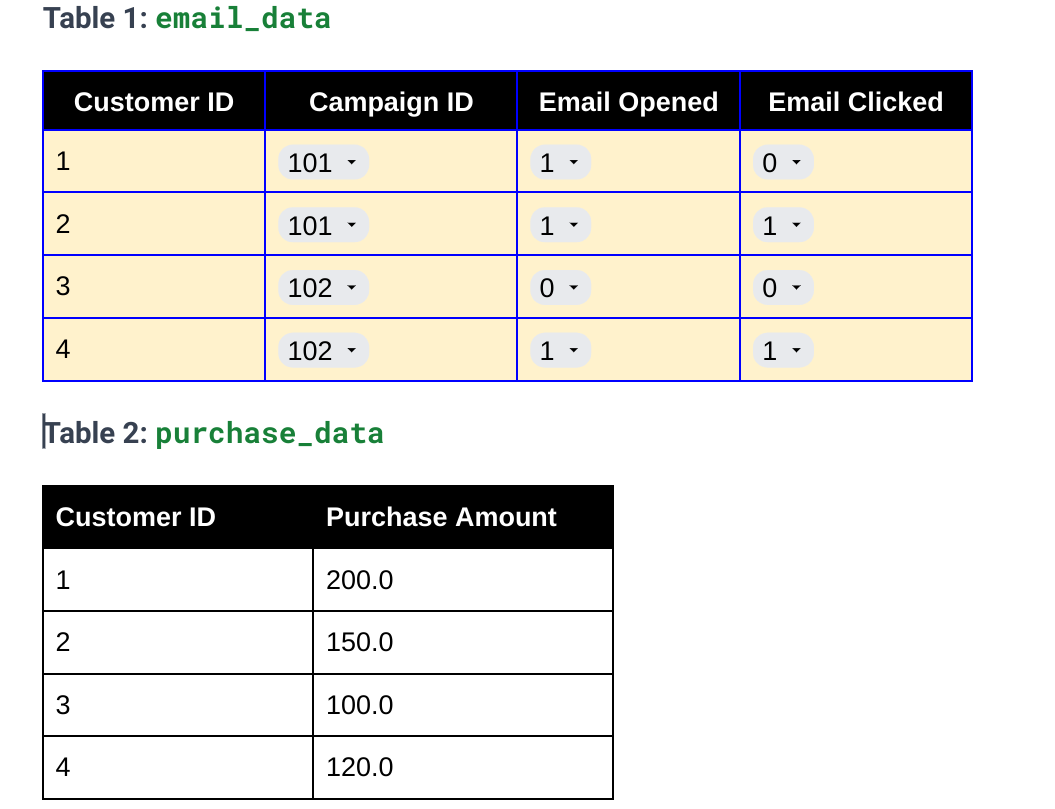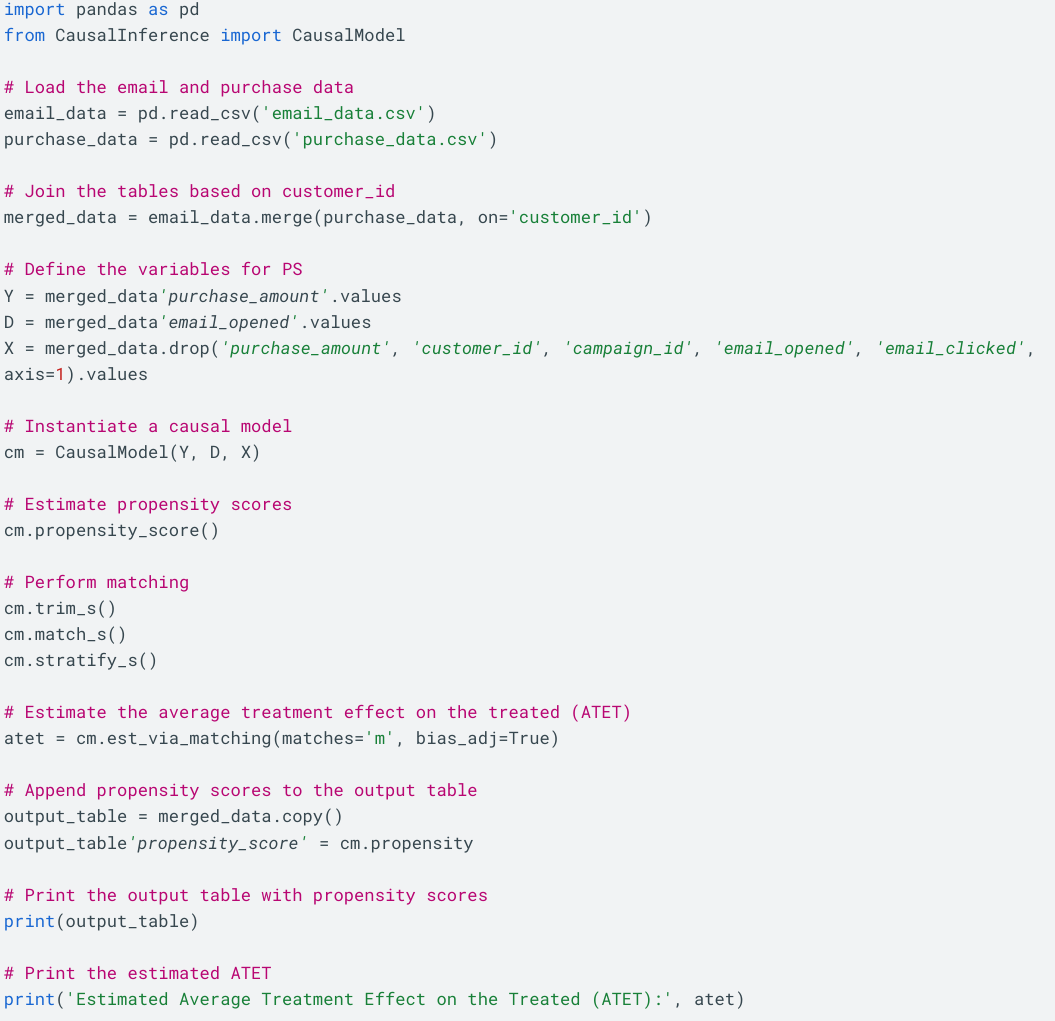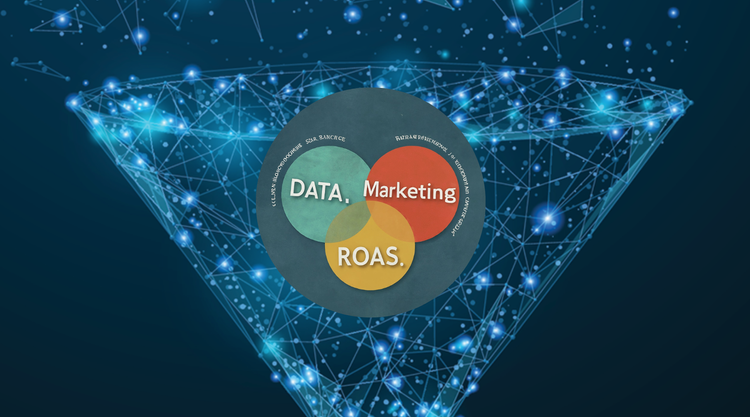Unlocking the Power of Causal Inference for Marketing Analytics

In the ever-changing world of marketing analytics, it is critical to understand the true impact of marketing initiatives to drive business growth. While traditional statistical analysis provides insights, it often falls short in establishing causal relationships. This is where causal inference techniques, such as Propensity Score Matching (PSM), come into play.
In this blog post, we will explore how PSM can unlock the power of causal analysis in marketing analytics. We will start by defining a clear business problem in the context of email campaigns, present an expanded input table derived from multiple tables, discuss the solution approach using PSM, showcase an enriched output table, and conclude with the implications of using causal analysis to optimize marketing spend and strategies.
Business Problem: Evaluating the Impact of an Email Campaign on Customer Purchases
Let's look at a real-world situation that a marketing team might face. Assume that a company has just launched an email campaign and wants to assess its influence on customer purchases. The team has data from the email campaigns and customer purchases stored in separate tables. Their goal is to determine whether the email campaign resulted in an increase in customer purchases and to comprehend the magnitude of the effect.
Input Tables
To analyze the impact of the email campaign, we have two separate tables: email_data and purchase_data.
- The email_data table contains information about the email campaign, such as the date and time the email was sent, the subject line, and the content of the email.
- The purchase_data table contains information about customer purchases, such as the date and time of the purchase, the product purchased, and the amount of the purchase.
We can use the data in these two tables to determine whether the email campaign had a significant impact on customer purchases.

The email_data table contains information on customers who received each campaign (campaign_id), as well as their email engagement metrics (email_opened and email_clicked). The purchase_data table contains the corresponding customer purchase amounts. These tables must be joined to create a unified input table for our analysis.
Solution: Propensity Score Matching (PSM)
To estimate the causal effect of the email campaign on customer purchases, we will use the Propensity Score Matching (PSM) technique. PSM allows us to compare the purchase behavior of customers who received the email campaign with a matched sample of customers who did not receive the campaign but had similar characteristics. The matching is based on the propensity score, which is the predicted probability of receiving the campaign given the observed covariates.
To implement PSM and estimate the causal effect in Python, we can use libraries such as Pandas and the `CausalInference` package.

Output Table
After running the script, the output table will contain the original data from the joined table with an additional column for propensity scores:

The output table contains the original data along with the purchase amount and the propensity scores. The propensity scores indicate the probability of being exposed to the email campaign based on the observed covariates. This information is essential for matching and estimating the causal effect.
In conclusion, causal analysis is a powerful tool that can be used to evaluate the impact of marketing campaigns. By understanding the causal relationships between campaigns and customer behavior, businesses can optimize marketing spend, identify the most effective strategies, and achieve significant improvements in customer engagement, conversion rates, and overall business performance. Causal inference techniques provide a robust framework for driving marketing analytics and maximizing the return on marketing investments.
If you have any questions or want to have any discussion on this topic, please reach out to Surya Kunju at LinkedIn.





Member discussion